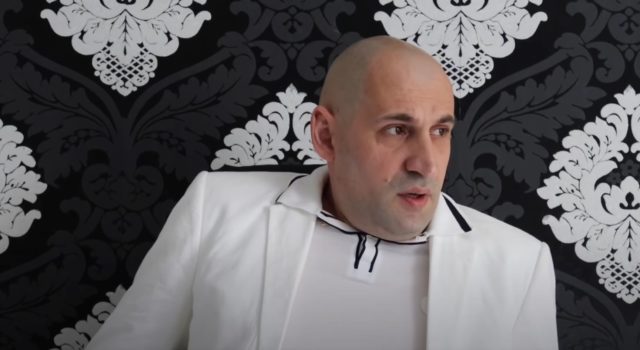
Murders of Chechen Refugees in Europe Become Increasingly Frequent
Publication: Eurasia Daily Monitor Volume: 17 Issue: 99
By:

Another critic of Chechnya’s pro-Moscow ruler Ramzan Kadyrov was killed in Austria. On the evening of July 4, the man was shot in the head and died in a parking lot next to a shopping center in the Vienna suburb of Gerasdorf. Initially, reports said that the target was a Russian asylum seeker. Austrian police intercepted the suspected murderer in the city of Linz, about a two-hour drive from the Austrian capital (Kurier, July 4).
The victim was soon identified by members of the Chechen diaspora in Austria as 43-year-old Mamikhan Umarov (a.k.a. Anzor Umarov). Umarov recently set up his own YouTube channel on which he scathingly (using personal insults) criticized Chechnya’s strongman, Ramzan Kadyrov, and spoke out about the Russian security services’ involvement in assassinations of Chechen pro-independence figures outside Russia (YouTube, accessed July 8). Two Chechens were detained on suspicion of involvement in Umarov’s killing: 47-year-old Sarali Akhtaev and 37-year-old Salman Magomadov. Reportedly, Akhtaev moved to Europe in 2002 and Magomadov in 2004. At this point, there is no reliable information on potential links between the suspects and the Russian security services. However, according to some sources, Magomadov used to be employed by the Antiterrorist Center in the Chechen town of Urus-Martan (TVRain, July 6). The Austrian Government Office for Constitutional Protection and Counterterrorism is investigating the Chechen dissident’s murder.
Mamikhan Umarov’s former ties to the security services, on the other hand, appear to be abundant. In the past, he served as a police officer in Chechnya. He also called himself a former member of the security services of the separatist Republic of Ichkeria. Umarov had once contacted a member of the Ukrainian parliament, Ihor Mosiychuk, and told him that he had received orders from Kadyrov’s aide Shaa Turlaev to kill Chechen volunteers (who fought against the Moscow-backed separatists in eastern Ukraine) Adam Osmaev and his wife Amina Okueva as well as Mosiychuk himself. Turlaev was, in the past, a leader of separatist insurgents in Chechnya, who eventually switched to the Russian side. Okueva was killed in Ukraine in the fall of 2017. Mosiychuk survived an assassination attempt days earlier. Umarov reportedly provided extensive information to the Ukrainian and Austrian security services on the links of Chechen officials to assassinations in Europe. Telephone recordings reportedly included voices of Shaa Turlaev and Adam Delimkhanov, the latter a member of the Russian parliament from the Chechen Republic. Mamikhan Umarov lived in Austria since 2005, under the name of Beck Martin. In 2007, he was granted refugee status. According to him, he left Chechnya because “after the main field commanders were killed, they [the authorities] started to look for new victims who once worked under Ichkeria. Everyone was persecuted” (BBC—Russian service, July 5). The popular Chechen blogger Tumso Abdurakhmanov noted that Umarov’s brother was killed in Chechnya and the authorities tortured his mother in order to find out his whereabouts (Kavkazsky Uzel, July 6).
This is not the first time an enemy of Kadyrov and the Russian state was hunted down in Austria. Kadyrov’s former bodyguard Umar Israilov was killed in Vienna in broad daylight in 2009. Israilov had detailed acts of torture and killings, in which top leaders of Chechnya, including Ramzan Kadyrov and Adam Delimkhanov, were personally involved. For example, Kadyrov was said to enjoy giving prisoners electric shocks or firing pistols at their feet. Several assassinations of Chechen refugees have also taken place in Turkey (see EDM, April 21, 2016).
Many Russian observers believe that Kadyrov’s especially close relationship with the president of Russia, Vladimir Putin, gives the Chechen head formidable political gravitas in the Russian Federation. Kadyrov has been an effective and ruthless indirect ruler of his North Caucasus republic, after having put down the pro-independence movement in Chechnya using heavy-handed methods with the full backing of Moscow. Since the near complete elimination of the insurgency in Chechnya, republican authorities with the apparent assistance of the Russian security services moved on to kill off their enemies abroad.
While murders of Chechen opposition figures in Europe are not a new development, it appears the frequency of such attempts has recently increased. The Chechen-born blogger Imran Aliyev, known by his pen name Mansur the Old, was killed in the French town of Lille in January 2020. He was stabbed 135 times. The suspected Russian-born killer returned to Chechnya immediately after the incident, according to French investigators. In August 2019, Georgian native Zelimkhan Khangoshvili, a former Chechen separatist fighter, was shot dead in Berlin. German authorities have accused the Russian government of staging the assassination. In February 2020, Tumso Abdurakhmanov stated that he was attacked in Sweden. The Chechen blogger managed to overpower the attacker and hand him over to the police.
Some estimates put the number of Chechens living in the European Union at over 100,000. It appears the Russian authorities may have used the flow of Chechen refugees in the early 2000s as a vehicle for planting their operatives across Europe. With the insurgency and political dissent practically eliminated in Chechnya and the North Caucasus, the Russian government has switched to killing and instilling fear among the pro-independence Chechens living in exile in the EU. In this process, Kadyrov and his agents are once again proving indispensable for Moscow. Russian authorities use loyal Chechens to identify the dissidents, approach and kill them. By employing ethnic Chechens, the Kremlin seeks to deflect the criticism from itself. Yet, the gambit is nonetheless transparent, since Kadyrov is clearly not allowed to pursue his own independent foreign policy, while assassinating Chechens in Europe and beyond requires permission from the pinnacle of the Russian power vertical.



